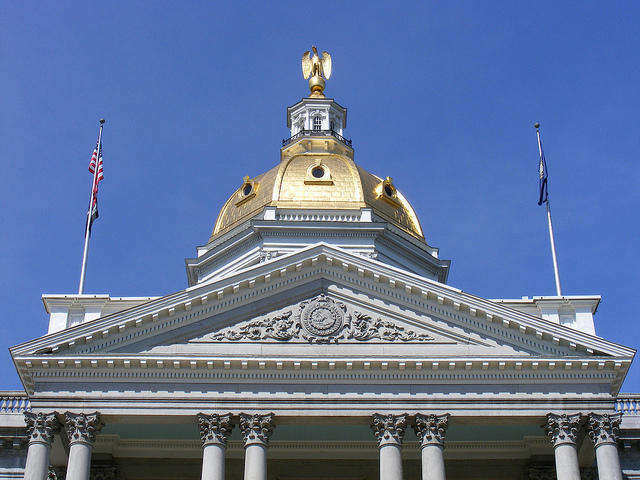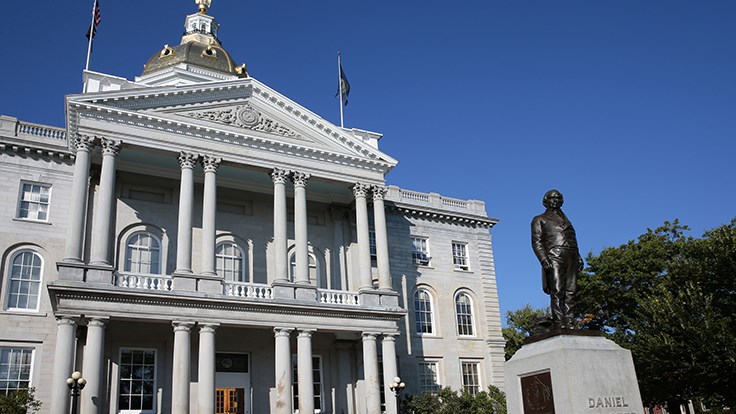A commission studying marijuana legalization will be seeking data on youth pot use to establish a New Hampshire baseline.
The move comes after the panel heard testimony Monday from Andrew Freedman, the former director of marijuana coordination for Colorado, which has legalized marijuana.
“The problem is that baseline data doesn’t exist in a lot of the metrics that we’re looking at. He gave us some good ideas,” Rep. Patrick Abrami, chairman of the commission, said after the hour-long presentation.
“I’m going to be contacting the (N.H.) Department of Education about some issues so that we can start tracking some data right now that they wished they had in Colorado about suspension related to marijuana. Things like that.”
Colorado voters legalized marijuana for those 21 and older in 2012. School-based youth surveys on drug use were conducted previously – as in states nationwide. Only in 2015-16, however, did Colorado produce a separate reporting for marijuana suspensions. There were 2,675 suspensions recorded that year, 3 percent of all suspensions, according to the presentation.
Freedman cautioned against using Colorado data to determine long-term impacts. He says there was not a huge shift in children’s ability to gain access to marijuana after Colorado legalized it.
“I don’t think we really will know for a while what the long-term impacts, post-commercialization, of legalization is,” he says. “I would say that this is good news, that the roll-out did not cause an initial, significant increase in youth use. At least in the measurements that we have.”
Colorado data indicates that middle- and high-school students see marijuana as less harmful than they did in the past, Freedman says. He attributes that to legalization of marijuana in Colorado, along with medical cannabis, and a trend-line over the past decade.
Freedman answered the commission’s questions about marijuana-related hospital visits. The numbers from Colorado do show an uptick after marijuana became commercially available for adults. Freeman noted that the state refocused on consumer education, in part because of “cannabis tourism,” with some visitors unfamiliar with marijuana products, such as edibles, and consuming too much.
The New Hampshire commission studying legalization, regulation, and taxation also heard Monday from Carollynn Ward, tax policy analyst with the New Hampshire Department of Revenue Administration. Ward, who is a member of the commission, said there are several ways to tax marijuana, including market price, weight, and THC content.
Using Colorado’s revenue model, New Hampshire would see $41.4 million, based in part on a 15 percent sales tax to consumers.
Recent legislation filed in 2016-2017 in New Hampshire proposed a 15 percent tax paid by the consumer.
Matt Simon, New England political director for Marijuana Policy Project, says New Hampshire has an array of options to consider that Colorado and seven other states use to regulate and tax marijuana.
“I don’t think it needs to be a big hurdle but getting all of these issues on the table is very helpful,” he said after the meeting. “Alaska, for example, uses a simple tax on cultivators and New Hampshire could easily adopt that. Having a percentage tax on retail is certainly more complicated but it isn’t something that New Hampshire has to do.”



